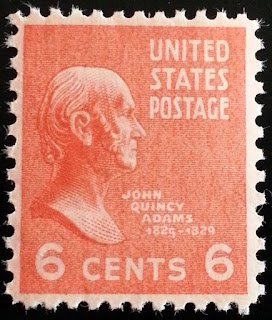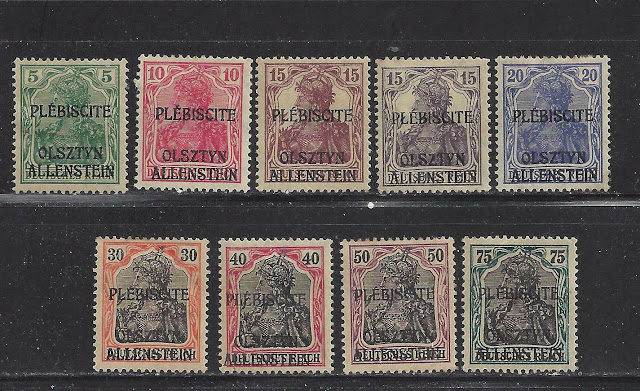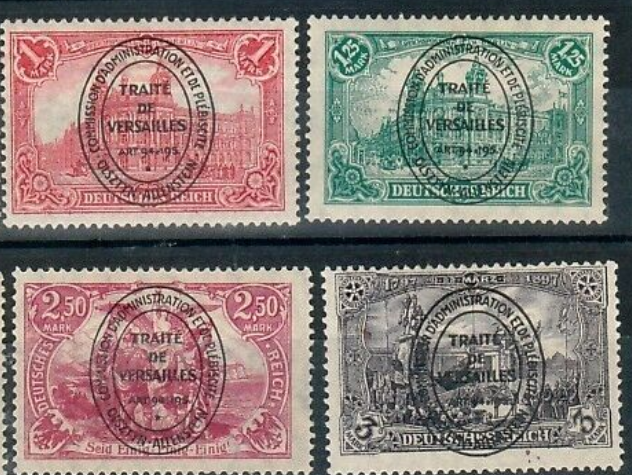1767 Born: John Quincy Adams, American politician, 6th President of the United States (d. 1848)
John Quincy Adams (July 11, 1767 – February 23, 1848) was an American statesman, diplomat, lawyer, and diarist who served as the sixth president of the United States, from 1825 to 1829. He previously served as the eighth United States Secretary of State from 1817 to 1825. During his long diplomatic and political career, Adams also served as an ambassador, and as a member of the United States Senate and House of Representatives representing Massachusetts. He was the eldest son of John Adams, who served as the second US president from 1797 to 1801, and First Lady Abigail Adams. Initially a Federalist like his father, he won election to the presidency as a member of the Democratic-Republican Party, and in the mid-1830s became affiliated with the Whig Party.
Born in what is now Quincy, Massachusetts (then part of the town of Braintree), Adams spent much of his youth in Europe, where his father served as a diplomat. After returning to the United States, Adams established a successful legal practice in Boston. In 1794, President George Washington appointed Adams as the U.S. ambassador to the Netherlands, and Adams would serve in high-ranking diplomatic posts until 1801, when Thomas Jefferson took office as president. Federalist leaders in Massachusetts arranged for Adams's election to the United States Senate in 1802, but Adams broke with the Federalist Party over foreign policy and was denied re-election. In 1809, Adams was appointed as the U.S. ambassador to Russia by President James Madison, a member of the Democratic-Republican Party. Adams held diplomatic posts for the duration of Madison's presidency, and he served as part of the American delegation that negotiated an end to the War of 1812. In 1817, newly elected president James Monroe selected Adams as his Secretary of State. In that role, Adams negotiated the Adams–Onís Treaty, which provided for the American acquisition of Florida. He also helped formulate the Monroe Doctrine, which became a key tenet of U.S. foreign policy.
The 1824 presidential election was contested by Adams, Andrew Jackson, William H. Crawford, and Henry Clay, all of whom were members of the Democratic-Republican Party. As no candidate won a majority of the electoral vote, the House of Representatives held a contingent election to determine the president, and Adams won that contingent election with the support of Clay. As president, Adams called for an ambitious agenda that included federally funded infrastructure projects, the establishment of a national university, and engagement with the countries of Latin America, but many of his initiatives were defeated in Congress. During Adams's presidency, the Democratic-Republican Party polarized into two major camps: one group, known as the National Republican Party, supported President Adams, while the other group, known as the Democratic Party, was led by Andrew Jackson. The Democrats proved to be more effective political organizers than Adams and his National Republican supporters, and Jackson decisively defeated Adams in the 1828 presidential election, the second president (after his father) to fail re-election.
Rather than retiring from public service, Adams won election to the House of Representatives, where he would serve from 1831 to his death in 1848. He remains the only ex-president to be elected to the chamber (although John Tyler was elected a Confederate representative, dying before seated). Narrowly failing attempts at Governor of Massachusetts and re-election to the Senate, Adams joined the Anti-Masonic Party in the early 1830s before becoming a member of the Whig Party, which united those opposed to President Jackson. During his time in Congress, Adams became increasingly critical of slavery and of the Southern leaders who he believed controlled the Democratic Party. He was particularly opposed to the annexation of Texas and the Mexican–American War, which he saw as a war to extend slavery and its political grip on Congress. He also led the repeal of the "gag rule", which had prevented the House of Representatives from debating petitions to abolish slavery. Historians generally concur that Adams was one of the greatest diplomats and secretaries of state in American history; they typically rank him as an average president, as he had an ambitious agenda but could not get it passed by Congress.
The East Prussia(n) plebiscite (German: Abstimmung in Ostpreußen), also known as the Allenstein and Marienwerder plebiscite or Warmia, Masuria and Powiśle plebiscite (Polish: Plebiscyt na Warmii, Mazurach i Powiślu), was a plebiscite for self-determination of the regions southern Warmia (Ermland), Masuria (Mazury, Masuren) and Powiśle, which had been in parts of the East Prussian Government Region of Allenstein and of West Prussian Government Region of Marienwerder, in accordance with Articles 94 to 97 of the Treaty of Versailles.
Prepared during early 1920, it took place on 11 July 1920. The plebiscite was conducted by German authorities, formally under Inter-Allied control. According to Richard K. Debo, both German and Polish governments believed that the outcome of the plebiscite was decided by the ongoing Polish-Bolshevik War which threatened the existence of the newly formed Polish state itself and, as a result, even many German citizens of Polish ethnicity of the region voted for Germany out of fear that if the area was allocated to Poland it would soon fall under Soviet rule
Here are some stamps issued during this period. One kind of overprint read PLÉBISCITE / OLSZTYN / ALLENSTEIN, while the other read TRAITÉ / DE / VERSAILLES / ART. 94 et 95 inside an oval whose border gave the full name of the plebiscite commission
1979 – America's first space station, Skylab, is destroyed as it re-enters the Earth's atmosphere over the Indian Ocean.
Skylab was the first space station launched and operated by NASA, occupied for about 24 weeks between May 1973 and February 1974. It was the only space station that the United States has operated exclusively. It fell back to Earth amid worldwide media attention in 1979. Skylab included a workshop, a solar observatory, and several hundred life science and physical science experiments.
Stamps from Hungary and the United States depicting Skylab





